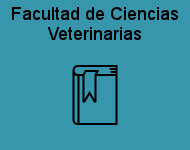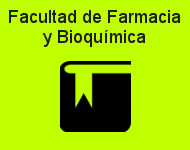untitled
The alternative sigma factor, σS, affects polyhydroxyalkanoate metabolism in Pseudomonas putida
Raiger-Iustman, L.J. - Ruiz, J.A.


Fecha:
2008
Tipo de documento:
info:eu-repo/semantics/article
info:ar-repo/semantics/artículo
info:eu-repo/semantics/publishedVersion
info:ar-repo/semantics/artículo
info:eu-repo/semantics/publishedVersion
Formato:
application/pdf
Temas:
Polyhydroxyalkanoate - Pseudomonas putida - Regulation - RpoS - Stress resistance - bacterial enzyme - polyhydroxyalkanoate depolymerase - polyhydroxyalkanoate synthase - polyhydroxyalkanoate synthase 1 - polyhydroxyalkanoic acid - sigma factor - sigma factor RpoS - article - bacterial metabolism - bacterial strain - bacterial survival - controlled study - degradation - gene inactivation - nonhuman - oxidative stress - priority journal - promoter region - protein expression - Pseudomonas putida - Bacterial Proteins - Cloning, Molecular - Gene Expression Regulation, Bacterial - Gene Silencing - Hydrogen Peroxide - Microbial Viability - Oxidative Stress - Plasmids - Polyhydroxyalkanoates - Promoter Regions (Genetics) - Pseudomonas putida - Recombinant Fusion Proteins - Sigma Factor - Time - Pseudomonas putida
Descripción:
To determine whether the stationary sigma factor, σS, influences polyhydroxyalkanoate metabolism in Pseudomonas putida KT2440, an rpoS-negative mutant was constructed to evaluate polyhydroxyalkanoate accumulation and expression of a translational fusion to the promoter region of the genes that code for polyhydroxyalkanoate synthase 1 (phaC1) and polyhydroxyalkanoate depolymerase (phaZ). By comparison with the wild-type, the rpoS mutant showed a higher polyhydroxyalkanoate degradation rate and increased expression of the translational fusion during the stationary growth phase. These results suggest that σS might control the genes involved in polyhydroxyalkanoate metabolism, possibly in an indirect manner. In addition, survival and oxidative stress assays performed under polyhydroxyalkanoate- and nonpolyhydroxyalkanoate- accumulating conditions demonstrated that the accumulated polyhydroxyalkanoate increased the survival and stress tolerance of the rpoS mutant. According to this, polyhydroxyalkanoate accumulation would help cells to overcome the adverse conditions encountered during the stationary phase in the strain that lacks RpoS. © 2008 Federation of European Microbiological Societies. Published by Blackwell Publishing Ltd. All rights reserved.
Fil:Raiger-Iustman, L.J. Universidad de Buenos Aires. Facultad de Ciencias Exactas y Naturales; Argentina.
Fil:Ruiz, J.A. Universidad de Buenos Aires. Facultad de Ciencias Exactas y Naturales; Argentina.
Fil:Raiger-Iustman, L.J. Universidad de Buenos Aires. Facultad de Ciencias Exactas y Naturales; Argentina.
Fil:Ruiz, J.A. Universidad de Buenos Aires. Facultad de Ciencias Exactas y Naturales; Argentina.
Fuente:
FEMS Microbiol. Lett. 2008;284(2):218-224
Identificador:
http://hdl.handle.net/20.500.12110/paper_03781097_v284_n2_p218_RaigerIustman
http://repositoriouba.sisbi.uba.ar/gsdl/cgi-bin/library.cgi?a=d&c=artiaex&d=paper_03781097_v284_n2_p218_RaigerIustman_oai
http://repositoriouba.sisbi.uba.ar/gsdl/cgi-bin/library.cgi?a=d&c=artiaex&d=paper_03781097_v284_n2_p218_RaigerIustman_oai
Derechos:
info:eu-repo/semantics/openAccess
Cita bibliográfica:
Raiger-Iustman, L.J. ; Ruiz, J.A. (2008). The alternative sigma factor, σS, affects polyhydroxyalkanoate metabolism in Pseudomonas putida. (info:eu-repo/semantics/article). [consultado: ] Disponible en el Repositorio Digital Institucional de la Universidad de Buenos Aires: <http://hdl.handle.net/20.500.12110/paper_03781097_v284_n2_p218_RaigerIustman>





























